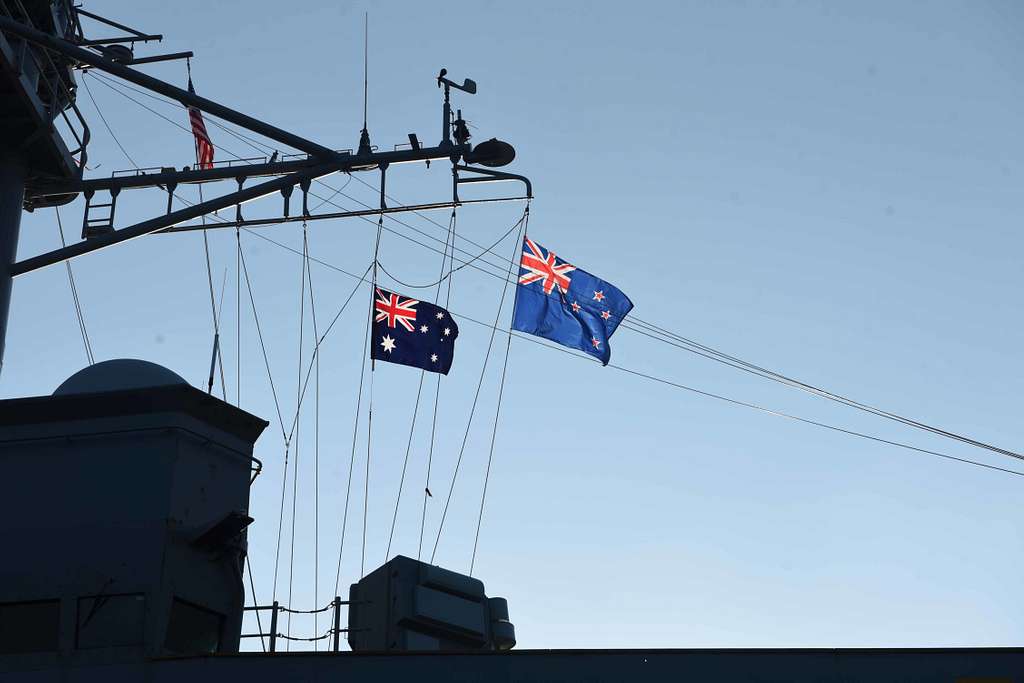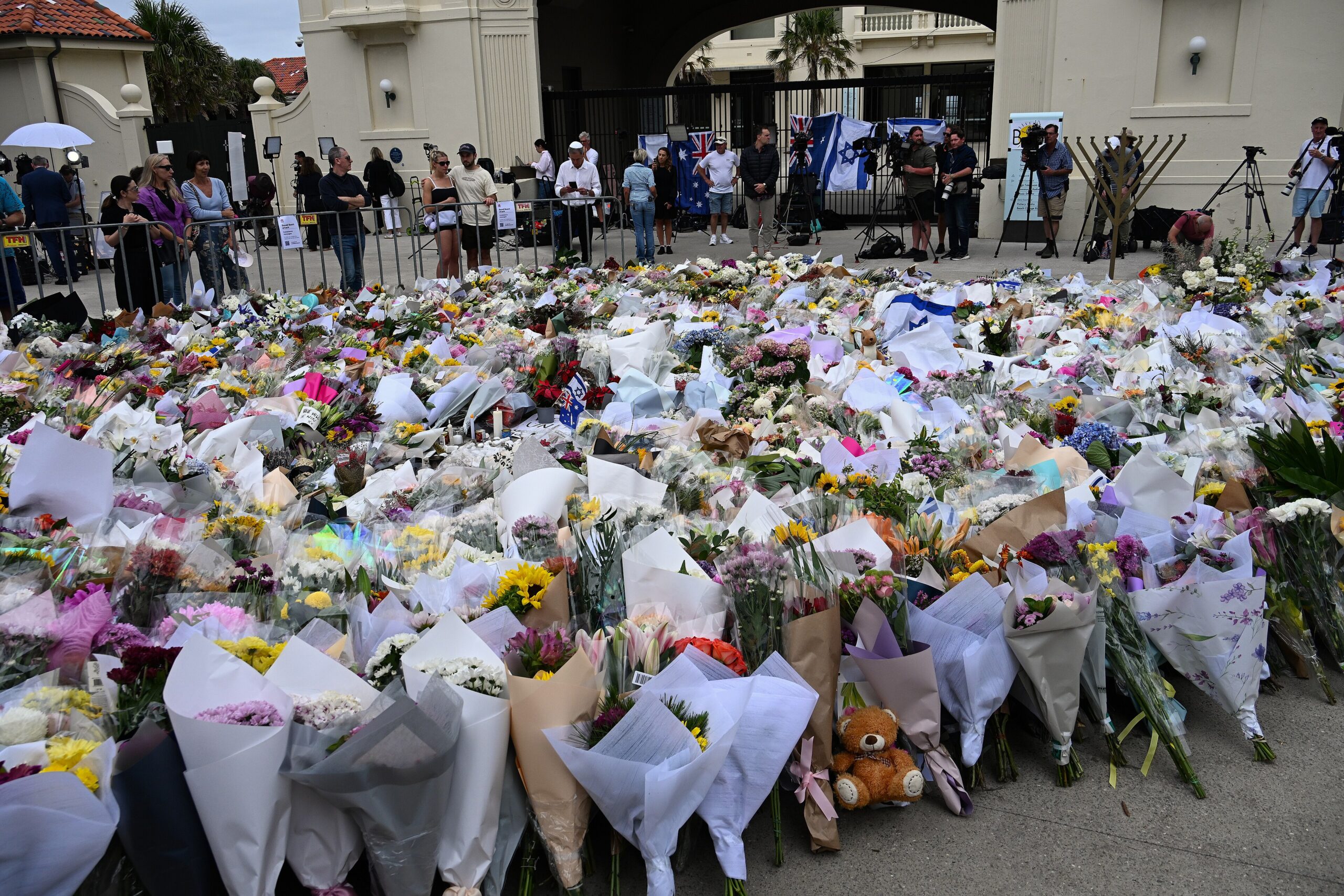This week in Australian foreign affairs: Government establishes Australian Naval Nuclear Power Safety Regulator marking key AUKUS milestone; Australian battery technology and quantum clocks set to be used in AUKUS submarines; Australia provides additional humanitarian assistance to Sudan and imposes sanctions on North Korean cyber criminals, and more.
On 31 October, Deputy Prime Minister and Minister for Defence Richard Marles announced his travel to Malaysia to represent Australia at the 12th Association of Southeast Asian Nations Defence Ministers’ Meeting Plus. ASEAN sits at the core of Australia’s vision for a peaceful, stable and prosperous region, where all countries – large and small – are free to exercise their sovereignty. Through the ADMM-Plus, defence ministers from across the region come together to pursue dialogue and cooperation in support of these fundamental principles. While in Kuala Lumpur, the Deputy Prime Minister also held a series of bilateral and multilateral meetings with his counterparts. Deputy Prime Minister Marles described the ADMM-Plus as “the region’s premier defence forum, bringing together a critical group of states to pursue the dialogue and cooperation that is a pre-requisite for a peaceful, stable, and prosperous region,” emphasizing Australia’s strong support for a regional order with ASEAN at its centre, providing an essential stabilising influence.
On 1 November, the Albanese Government delivered a key milestone in Australia’s conventionally-armed, nuclear-powered submarine program with the establishment of the Australian Naval Nuclear Power Safety Regulator. The new statutory Agency is responsible for the effective regulatory oversight of Australia’s naval nuclear propulsion capabilities, providing independent assurance that the highest standards of nuclear safety and radiological protection are upheld. Deputy Prime Minister Richard Marles announced Mr Michael Drake as the inaugural Director-General of the new regulatory Agency. Mr Drake brings technical expertise and a decade of maritime regulation experience, including most recently as the Executive Director of Operations with the Australian Maritime Safety Authority, and before that 15 years in the Royal Australian Navy where he served primarily in Australia’s Collins class submarines. Commencing with over 70 trained staff, the new Agency has been working closely with the Australian Radiation Protection and Nuclear Safety Agency to ensure a smooth transition of regulatory oversight. The new Agency is headquartered in Canberra and has a presence across the country as well as overseas, with personnel embedded in the United States and United Kingdom. The Australian Naval Nuclear Power Safety Regulations 2025, relating to licensing facilities and materials for activities related to naval nuclear propulsion, have been made following extensive consultation, including formal public consultation in July 2025. Deputy Prime Minister Marles stated that “this new Agency will play a key role in ensuring the highest standards of nuclear safety and stewardship.”
On 4 November, Minister for Defence Industry and Pacific Island Affairs Pat Conroy announced a strategic contract that paves the way for Australian battery technology to be used in the AUKUS submarine design, supporting local innovation and hundreds of jobs. South Australian-based PMB Defence is partnering with BAE Systems in the United Kingdom to enable the potential integration of its advanced nickel zinc battery system into the design of the future conventionally-armed, nuclear-powered submarines. PMB will also supply battery technology for other Royal Navy submarines. The contracts between PMB and BAE, valued in excess of $34 million, have already seen PMB add 20 staff to its workforce in South Australia with the company anticipating adding more jobs as it scales up to meet production requirements. These new jobs add to the 450 positions already created at BAE and ASC as a result of the AUKUS program. PMB is a world-leading manufacturer of submarine battery systems, producing the main storage batteries for the Collins-class submarines, which have been in operation with the Royal Australian Navy since 1996. Minister Conroy stated that “the Albanese Government will always back Australian innovation and this strategic contract reinforces the fact that Aussies are world leaders when it comes to defence technology,” noting that AUKUS is expected to create around 20,000 direct jobs over the next 30 years.
On 4 November, Minister for Defence Industry Pat Conroy announced that four Australian-developed quantum technology clocks have been successfully trialled in the United States, as part of the Albanese Government’s $2.7 million investment towards these AUKUS Pillar Two capabilities. Held over a six-week period in Washington D.C., the trials saw Adelaide-based QuantX Labs and the University of Adelaide each contribute two quantum clocks, which were tested by AUKUS partners under various environmental conditions to evaluate their performance and potential for defence applications, including communication and navigation systems. Quantum clocks are used to assure the synchronisation of communications networks, detect GPS spoofing and jamming, and provide reliable position, navigation and timing in contested environments. These world-leading clocks have been developed in Adelaide through $2.7 million in Australian Government contracts, in conjunction with the Defence Science and Technology Group, and sovereign industry and academic partners. Minister Conroy stated that “Australian industry has long been at the forefront of quantum technology,” noting that “through AUKUS Pillar II, we are achieving capability development faster than any one of our nations could achieve alone.”
On 5 November, Foreign Minister Penny Wong and Minister for International Development Anne Aly announced that the Australian Government will provide an additional $10 million in humanitarian assistance to support civilians in Sudan, where the world’s largest humanitarian and displacement crisis is taking place. More than 30 million people are in need of urgent support due to the ongoing conflict, including approximately 11 million people who are internally displaced, and another three million people who have fled to neighbouring countries. Australia’s assistance will be directed through United Nations and NGO partners to provide food, clean water and shelter, and support to victim survivors of gender-based violence. Australia has now provided over $60 million to the crisis in Sudan since 2023, with a particular focus on women and girls. Foreign Minister Wong stated that “Australia is horrified by reports of mass killings, sexual violence and deliberate attacks on civilians in El Fasher, Sudan,” condemning the atrocities committed by the Rapid Support Forces and calling for an immediate end to the violence and unhindered humanitarian access. Minister Aly noted that “the suffering in Sudan is catastrophic,” emphasizing that Australia’s humanitarian assistance will help deliver lifesaving support to the people most in need.
On 6 November, the Australian Government imposed financial sanctions and travel bans on four entities and one individual engaged in cybercrime to support and fund North Korea’s unlawful weapons of mass destruction and ballistic missile programs. Foreign Minister Penny Wong noted that the scale of North Korea’s involvement in malicious cyber-enabled activities, including cryptocurrency theft, fraudulent IT work and espionage is deeply concerning. The second report by the Multilateral Sanctions Monitoring Team found that North Korean cyber actors stole at least $1.9 billion in cryptocurrency from companies around the world in 2024, and used a global network of North Korean nationals and foreign facilitators to launder stolen digital assets. The Australian Government is taking this action with the United States to apply pressure on North Korea’s illegal revenue generation networks and address its persistent challenges to security and stability. Australia will continue to work with international partners to respond to malicious cyber activity, promote the framework for responsible state behaviour in cyberspace and keep Australians safe. The Government called on North Korea to comply fully with United Nations Security Council resolutions to abandon its unlawful weapons of mass destruction and ballistic missile programs in a complete, verifiable and irreversible manner.
On 6 November, Foreign Minister Penny Wong met with Sviatlana Tsikhanouskaya, head of the United Transitional Cabinet of Belarus. Ms Tsikhanouskaya is an advocate for a free and democratic Belarus, whose decision to run in the 2020 presidential election in Belarus after the politically motivated imprisonment of her husband Serhei reflects her determination to support the Belarusian people’s aspirations for a free and democratic future. Minister Wong noted that Ms Tsikhanouskaya’s visit is an important reminder to Australians of the situation in Belarus under the Lukashenko regime, with reports that thousands of individuals in Belarus have been unjustly detained, subjected to torture, or forced into exile. The Lukashenko regime’s support for Russia’s illegal and immoral invasion of Ukraine undermines security in Europe, and the Australian Government has taken strong action in response, including sanctions on Lukashenko and others supporting Russia’s war. Minister Wong commended Ms Tsikhanouskaya’s bravery and her fight for universal values of democracy and human rights.
Foreign Minister Senator the Hon Penny Wong has confirmed she will deliver the keynote address at the AIIA National Conference Gala Dinner on 17 November. Further details are available on the AIIA website.
Emily Mosley is the Projects and Publications Manager for the AIIA National Office.
This article is published under a Creative Commons License and may be republished with attribution.




